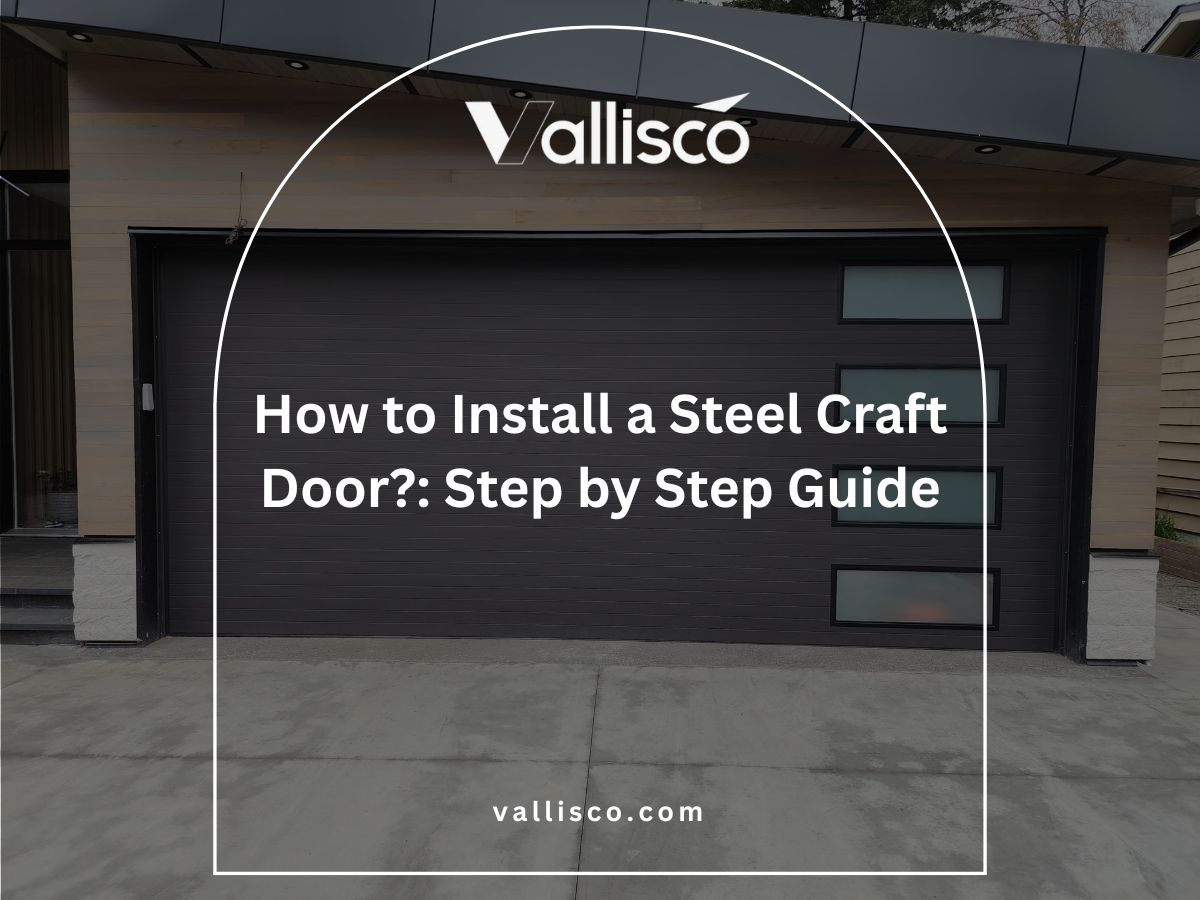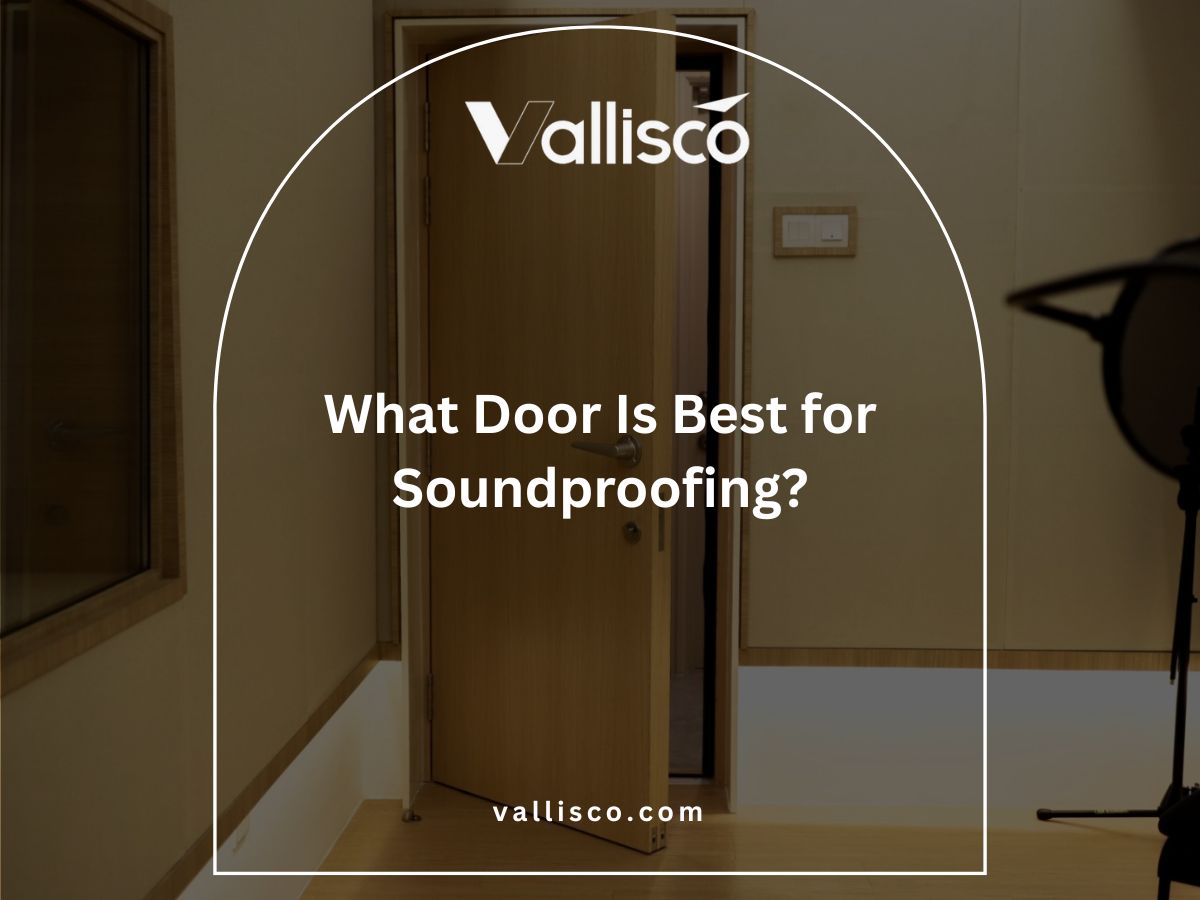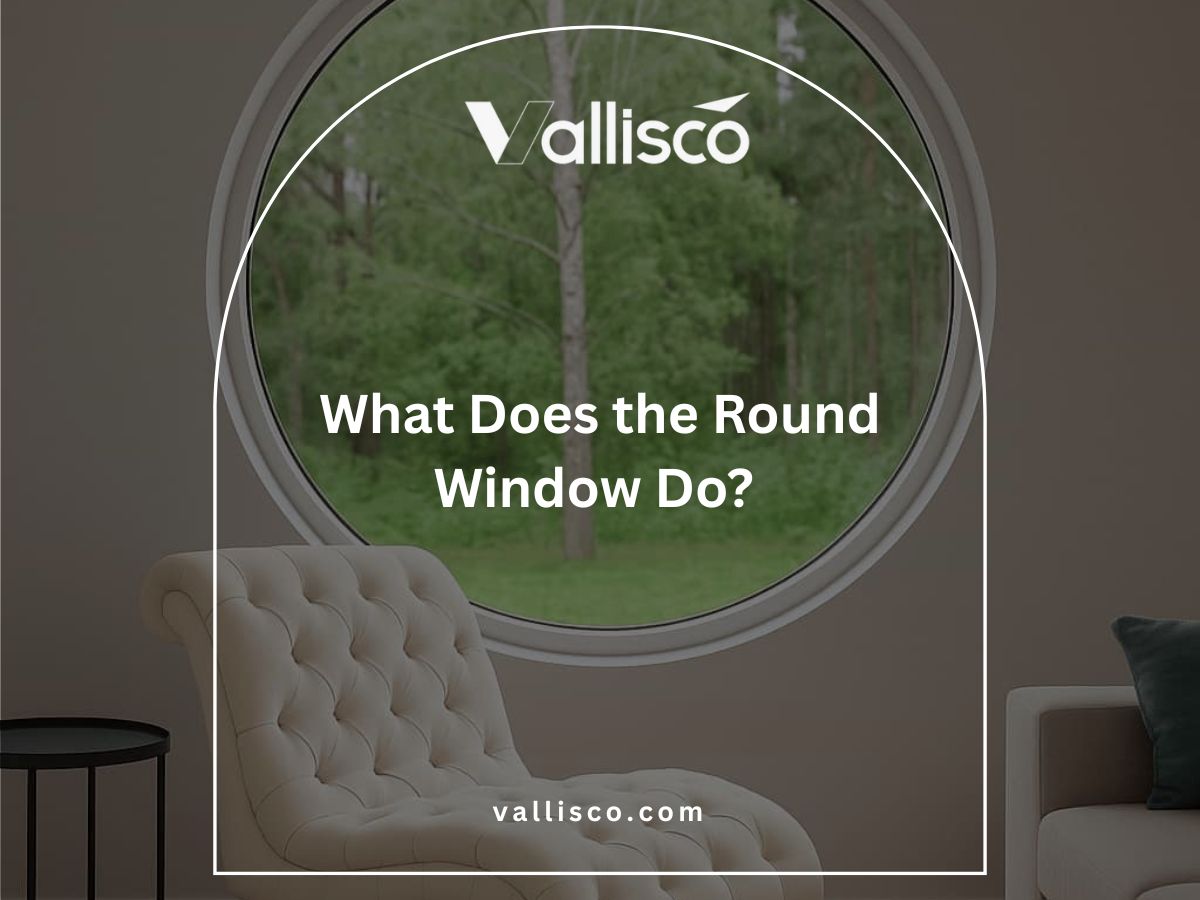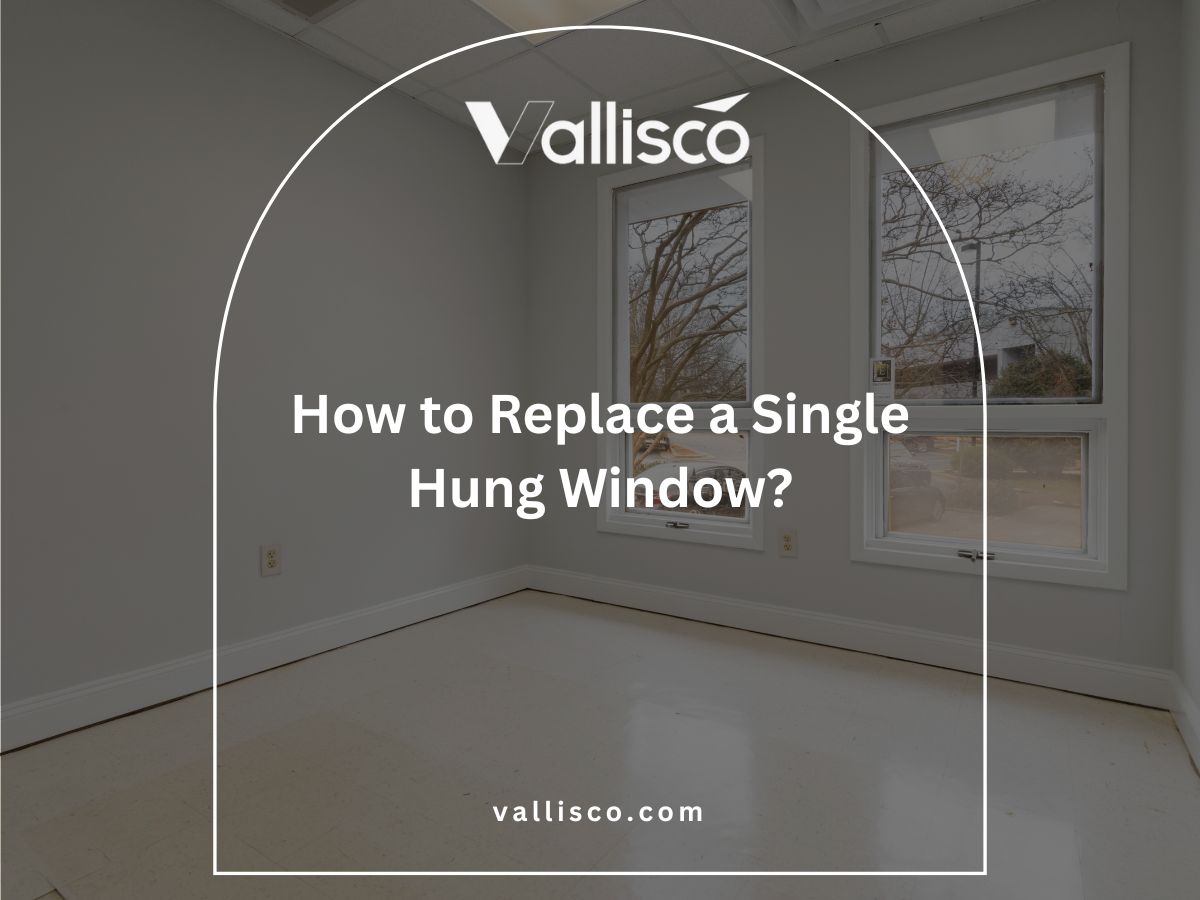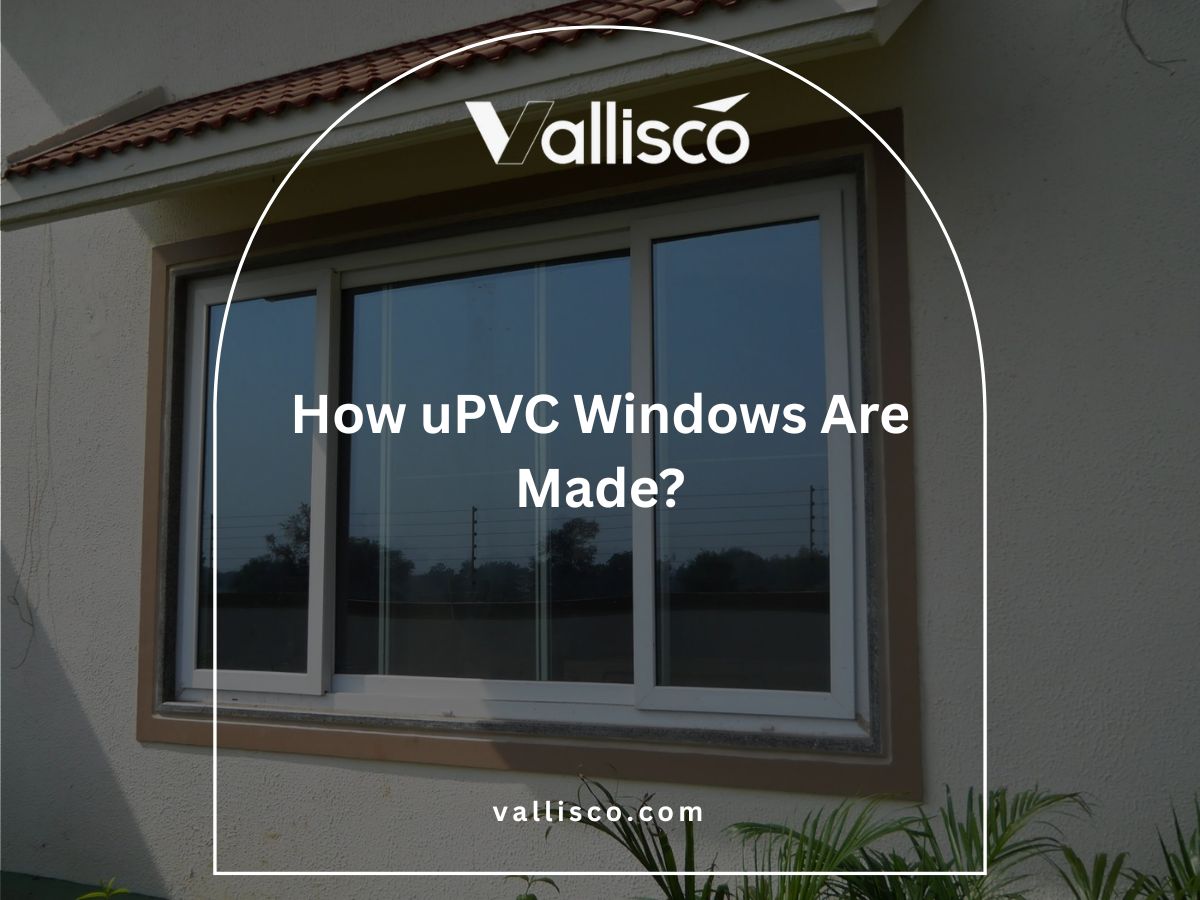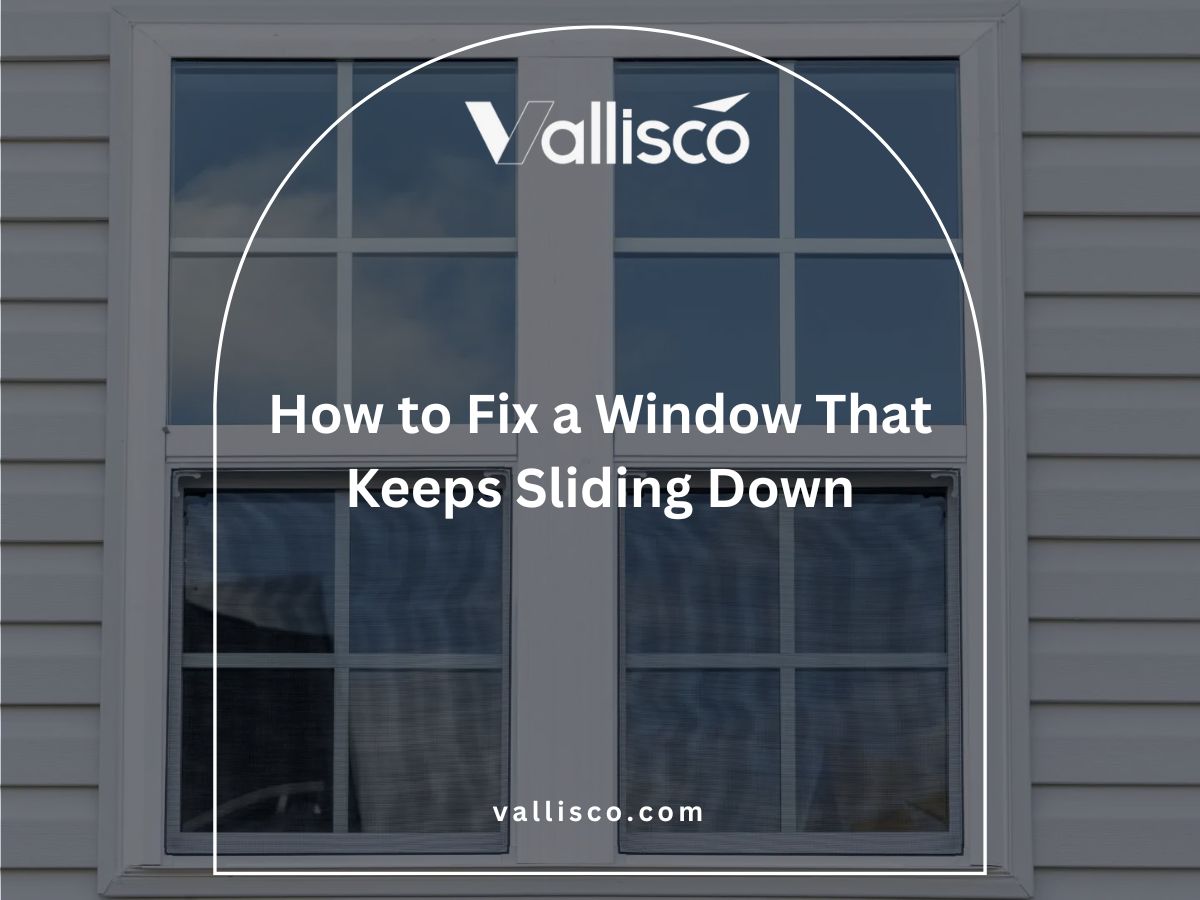Ever wondered where to buy double hung windows without the delivery delays and spec mistakes? I’ve got you!
I’ve spent years helping small hotels, villas, and custom homes source the right doors and windows. I’ve worked with suppliers directly, handled freight problems, and even had to re-order full batches when specs were ignored.
That’s why I wrote this review. I know what makes a supplier worth working with. I know how it feels when things go right, and I know how expensive it gets when they don’t.
In this guide, you’ll find business-friendly suppliers with experience in real builds. These options are based on actual performance, not nice websites or promises.
I’ve done the checking so you don’t have to.
So, let’s get started!
Comparison Chart
Before diving into the full details, here’s a quick side-by-side look at your main buying options. This gives you a fast overview before we break each one down.
| Buying Option | Advantages | Considerations | Best For |
| Local Distributors | Fast delivery, local support | Limited variety, higher cost | Small or quick-turn jobs |
| Direct From Manufacturers | Bulk pricing, custom options | Longer lead time, higher MOQ | Large or custom projects |
| Online Marketplaces | Broad access, sample-friendly | Quality risk, shipping delays | Prototyping, small batches |
| Construction & Architect Teams | Fewer steps, smoother coordination | Less choice, unclear pricing | Design-led build projects |
| Window & Door Showrooms | See before buying, expert help | Limited stock, higher price | Finish-focused selection |
| Trade Shows & Expos | New products, direct contact | Time-heavy, follow-up needed | Supplier discovery |
Now that you’ve seen the overview, let’s break each one down with real details and use cases.
1. Local Distributors
When I first started sourcing windows for villa projects, I leaned heavily on local distributors. You might already know someone nearby who stocks double hung windows or can get them quickly. These folks can be a great option if you want hands-on service and face-to-face support.
Advantages
- Faster Delivery Times: You can often get the windows within a few days, sometimes even the same day if it’s in stock.
- Easy On-Site Support: If something doesn’t fit or shows up damaged, the local rep can visit your job site and help solve the problem directly.
- Better for Small Orders: Local distributors are flexible. If you just need a few units, they won’t require a large minimum order.
- Stronger Working Relationships: It’s easier to build trust when you work with someone nearby. That can come in handy if you’re on a tight timeline.
- Knowledge of Local Requirements: They usually know what works well in your region and what meets local codes. That saves you time on back-and-forth.
Considerations Before Buying
- Limited Product Variety: Most local shops stick with a few core brands or stock standard sizes. You may need to special order anything outside that range.
- Higher Per-Unit Pricing: Local service adds value but also adds cost. Expect to pay more per window than you would direct from the factory.
- Not Scaled for Big Projects: If you’re working on a large build, they may not have the inventory or supply strength to support you from start to finish.
If you want speed, local service, and someone you can call directly, this is a good place to start. I still work with local distributors when the job is small or needs a quick turnaround. Just make sure they can meet your project’s scale and specs.
2. Direct From Manufacturers
I’ve worked directly with manufacturers on several larger window orders, especially for hotel and multi-unit projects. If you’ve ever needed consistency across dozens of rooms or want more control over custom features, this route might work well for you.
Some of you might be asking, is it really better to skip the middleman? In some cases, yes. But you’ll want to know what you’re getting into before placing a big order.
Advantages
- Lower Cost Per Window: Buying straight from the factory usually gets you the best price. No dealer markup, no middle steps. Vallisco products are competitively priced for bulk orders, making them a smart option for businesses that need volume without sacrificing quality.
- Custom Options Available: Most manufacturers offer more flexibility with sizes, glass types, finishes, and hardware. You get more control over the final product.
- Stronger Communication on Specs: You talk directly with the people making the windows. That helps reduce the chance of miscommunication or spec errors.
- More Scalable for Larger Projects: If you’re outfitting an entire hotel, they’re better equipped to handle volume and repeat orders.
- Consistent Quality Across Units: Since everything comes from the same production line, you get uniform sizing and finishes across the whole batch.
Considerations Before Buying
- Longer Lead Times: Direct orders usually take more time. You’ll need to plan ahead to avoid delays on site.
- Bigger Minimum Order Requirements: Many manufacturers have a minimum quantity. Not great if you’re only replacing a few windows.
- You Handle More Details: Without a distributor or rep, you’ll be responsible for checking measurements, shipping arrangements, and follow-ups.
If your build is big enough and you’re okay managing the details, going straight to the manufacturer can pay off. I’ve done this when I needed custom window features or bulk pricing, and it’s worked well when timelines are planned carefully.
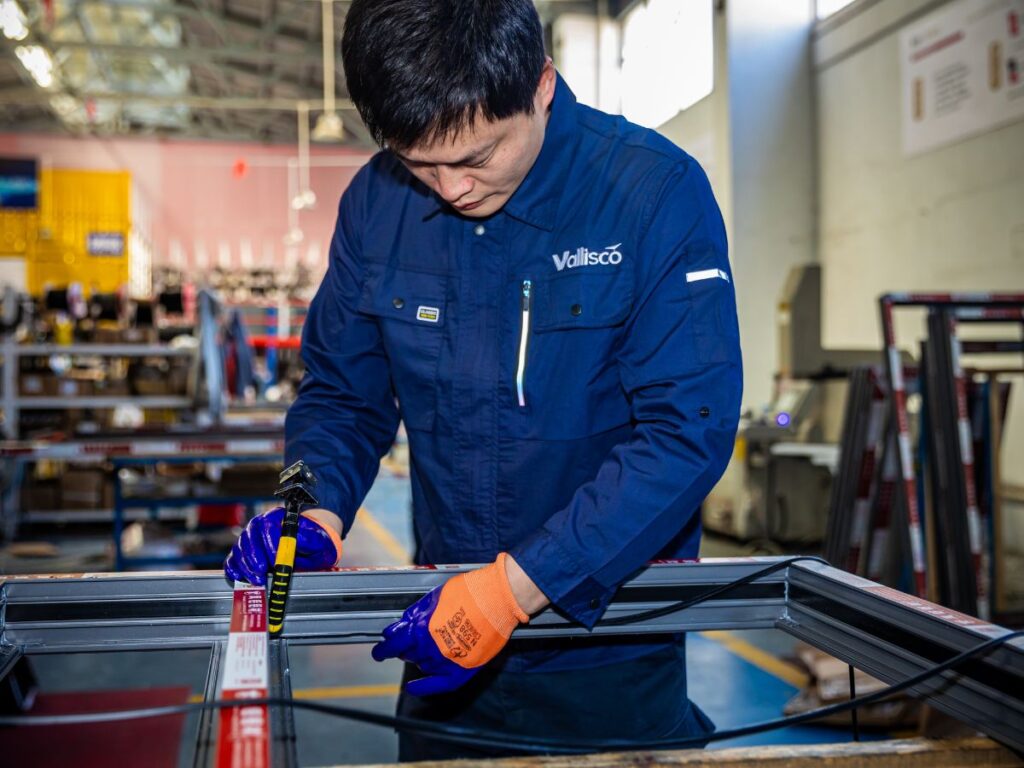
3. Online Marketplaces
I’ve had mixed experiences with online marketplaces, but that doesn’t mean you should ignore them. If you’re sourcing a few double hung windows or testing options for a small build, platforms like Alibaba or even U.S.-based B2B portals can give you access to suppliers you wouldn’t find locally.
Advantages
- Wider Range of Suppliers: You get access to both domestic and international vendors. That opens up pricing, materials, and feature options you may not find locally.
- Transparent Pricing and Specs: Listings often include full product descriptions, dimensions, certifications, and even downloadable catalogs. This helps you compare before reaching out.
- Convenient Quoting Process: You can contact multiple suppliers with one message. I’ve done this to get a quick sense of lead times and price ranges.
- Good for Prototype Orders: If you’re testing a new spec or sample room before a full build, marketplaces are great for one-off purchases.
- Helpful Reviews and Ratings: Many platforms let you see supplier ratings, transaction history, and customer feedback. That gives you an early filter before wasting time.
Considerations Before Buying
- Quality Can Be Inconsistent: Just because a supplier looks professional online doesn’t mean their products meet your expectations. Always ask for samples or third-party checks.
- Language or Communication Barriers: Some overseas vendors may struggle with custom specs or documentation. This can cause issues if your project has detailed requirements.
- Risk of Delayed Shipping: Freight timelines can be unpredictable. If your job site has a tight schedule, this might create problems down the line.
If you’re open to exploring new vendors and want flexibility on cost or features, marketplaces are worth checking out. I’ve used them to gather info, request samples, and even build supplier relationships that later turned into long-term partnerships.

4. Construction & Architectural Partners
Sometimes the best source for double hung windows isn’t a supplier you find, it’s someone your project team already works with. I’ve had projects where the architect or contractor brought in a trusted vendor, and it made the entire process smoother.
If you’re already working with professionals on the build, it’s smart to ask if they have window supplier connections.
Advantages
- Streamlined Communication: Your build team already knows the measurements and design intent. That helps avoid confusion and reduces errors during the ordering process.
- Better Fit With Project Design: When the supplier is involved early, the window details are more likely to match the style, finish, and layout of the overall plan.
- Single Point of Contact: You deal with one person instead of chasing multiple suppliers. That’s helpful when timelines are tight and decisions need to move fast.
- Lower Risk of Installation Problems: With everyone on the same page, it’s less likely that you’ll run into mismatched openings, reversed swing directions, or wrong placements.
- Tried-and-Tested Suppliers: Your contractor or architect has likely worked with the supplier before. That gives you some confidence in how the windows will perform.
Considerations Before Buying
- Fewer Supplier Options: You might not get to choose from a wide list. Some project teams prefer to stick with vendors they already know.
- Unclear Window Pricing: If the window cost is rolled into a package or subcontract, you may not see a clear breakdown of what you’re paying.
- Harder to Change Later: Once plans are approved and the order is in motion, switching suppliers could slow things down or add unexpected costs.
Letting your builder or architect handle the window sourcing can make things easier, especially for projects with a lot of moving parts. I’ve used this route myself, and it helped keep things on schedule without extra stress.

5. Specialized Window & Door Showrooms
I like visiting showrooms when I need to get a better feel for the product. You can see how the windows function, check the build quality up close, and talk to someone who knows the details. For B2B buyers like us, this can be helpful when you’re choosing between several similar models or looking to match a specific design.
Advantages
- Hands-On Product Inspection: You can open, close, and examine the windows yourself. This helps avoid surprises that often come with online or catalog-based orders.
- One-on-One Expert Guidance: Showroom staff usually know the product lines well. They can walk you through specs and help match options to your project.
- Design Coordination Made Easier: If you’re trying to match other doors, trims, or frames, seeing them side by side in the showroom makes the process easier.
- Quicker Decision Making: Being able to touch and compare products in person helps you move faster, especially when working with clients or other stakeholders.
- Access to Specialty Brands: Some high-performance or design-forward brands only sell through authorized showrooms. This can open up better options than you’d find through general suppliers.
Considerations Before Buying
- Location Limits Access: Not every area has a well-stocked showroom nearby. If you’re remote, you may need to travel or request samples instead.
- May Not Handle Large-Scale Orders: Some showrooms are geared toward residential or smaller commercial jobs. You’ll need to confirm they can scale to your project.
- Higher Pricing on Some Models: You might be paying premium showroom pricing, especially on exclusive brands or specialized designs.
I’ve found showrooms helpful when clients want to see exactly what they’re getting or when I need to confirm the feel and finish of a new product line. If you value physical comparison and face-to-face input, this route is worth exploring.
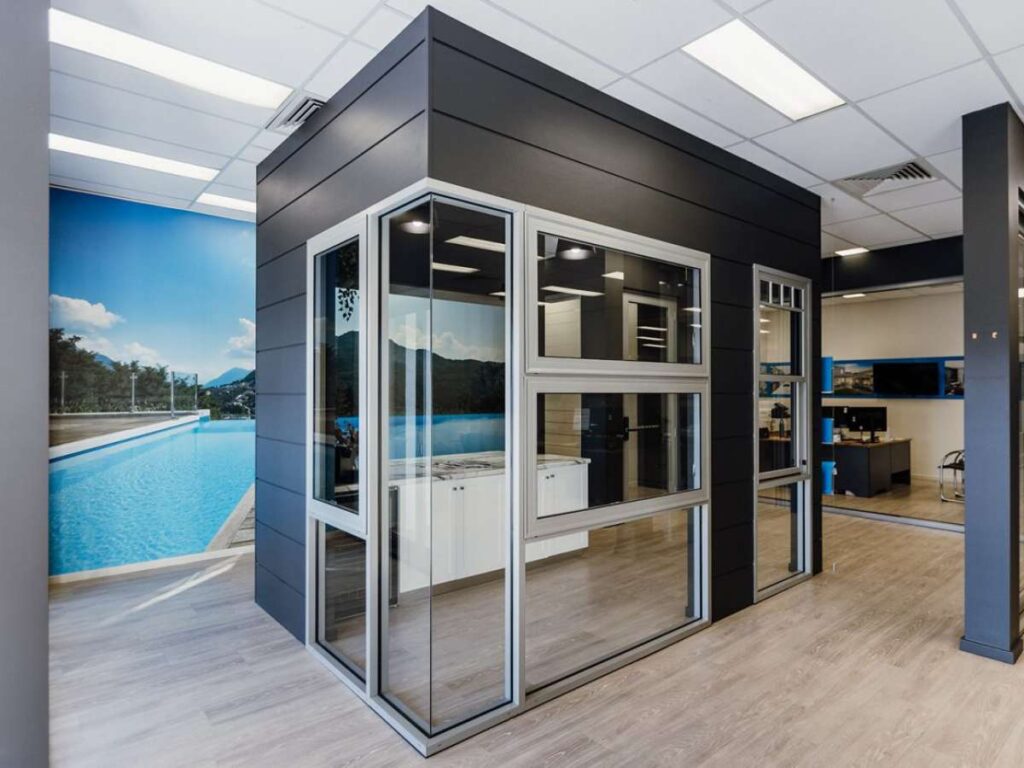
6. Regional Trade Shows or Expos
I know trade shows can feel overwhelming at first, but they’re one of the best ways to see what suppliers really offer. You can walk booth to booth, talk to manufacturers directly, and compare products without waiting for emails or quotes.
If you’re planning ahead for a larger project or just want to expand your supplier list, attending an industry expo can be a smart move.
Advantages
- Meet Suppliers Face to Face: You get direct contact with decision-makers, not just sales reps. That helps build real business relationships.
- Compare Multiple Products in One Day: Instead of visiting five websites or showrooms, you can check out dozens of brands side by side in person.
- See New Products and Trends: Many manufacturers use trade shows to debut their latest models and tech. You get an early look at what’s coming.
- Ask Project-Specific Questions: You can bring floor plans, drawings, or specs and talk through them right there. That’s something you can’t do easily online.
- Collect Samples and Literature: Most booths offer brochures, material samples, or even demo windows. It’s useful to bring back and share with your team.
Considerations Before Buying
- Takes Time and Planning: You’ll need to register, travel, and block out time to attend. That’s not always easy with an active job site.
- Follow-Up Is Still Needed: Meeting vendors is just step one. You’ll still need to get quotes, check references, and confirm delivery timelines afterward.
- Not Every Brand Exhibits: Some manufacturers skip regional events. If you’re looking for a specific supplier, check the exhibitor list before committing.
Final Thoughts on Trade Shows and Expos
Trade shows are where I’ve found some of my favorite long-term suppliers. If you treat it like a business trip instead of just a quick visit, the value is there. You walk away with real contacts, better product knowledge, and ideas you wouldn’t have picked up online.
And if you’re serious about building a stronger supply network for windows, it’s worth putting a show or two on your calendar each year.
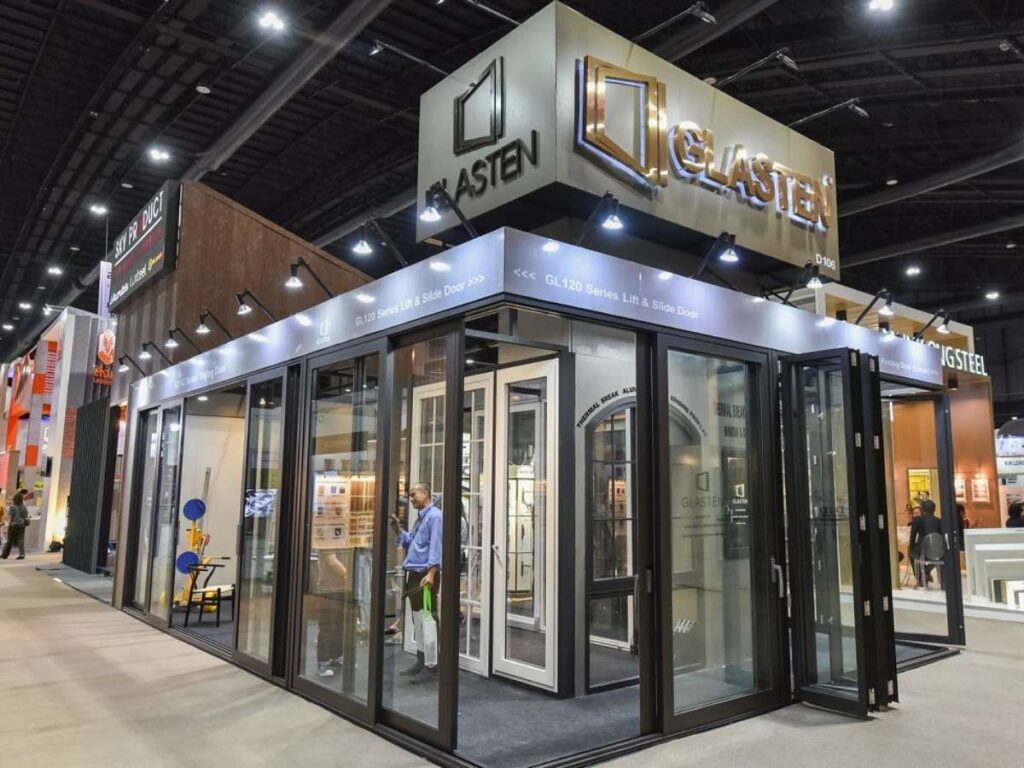
7. 3 Factors To Consider When Deciding Where to Buy Double Hung Windows
Once you know your options, it’s time to think about what really matters for your project. I always look at the job size, the timeline, and who’s responsible for handling mistakes. You’ll want to think through these key factors before choosing where to buy.
Below are the three things I recommend every B2B buyer keep in mind before placing that first window order:
Project Size and Complexity
The bigger the job, the more reliable your supply chain needs to be. For large-scale builds like hotels or apartment units, buying direct from manufacturers is usually the smarter route. Vallisco offers manufacturing support that fits well with large-scale window and door needs. Their setup allows for consistent output, flexible order volumes, and coordinated delivery across different phases of a project.
On smaller jobs, like a villa or B&B, local distributors or showrooms might be more responsive and easier to coordinate with. If your project is in between, start by checking availability and asking what kind of project volume they’ve handled before.
Customization and Technical Requirements
Some builds come with tighter requirements. If you need non-standard sizes, specialty glass, or custom finishes, you’re better off working with manufacturers or showrooms that specialize in custom orders.
Local distributors might offer quick delivery, but their stock is usually limited to standard options. Online platforms can work too, but only if you’re confident they understand your specs. Always ask for sample drawings and review product data before confirming anything.
Support, Service, and Communication
Even with a clean spec sheet, you still need a responsive supplier. This matters most if you’re working on a site with tight deadlines or coordination between teams. Local distributors and construction partners are usually easier to reach and quick to handle issues, especially if you need someone on-site.
With online marketplaces, communication varies, some vendors are great, others are hard to pin down. If you’re buying direct, make sure there’s a clear contact for after-sales support.
Conclusion
That hotel project I mentioned earlier? The second attempt went much better because we worked with the right supplier.
You can avoid the same mistakes by using this guide to compare your options. Whether you’re handling a small renovation or a large-scale build, choosing the right source makes all the difference.
Vallisco offers reliable, factory-direct service made for business needs.
Contact us today to see how we can help with your next window order!
Check Out These Additional Resources
Need more ideas? Browse through our extended range of products and discover something new:
Still haven’t found what you’re looking for? Don’t hesitate to contact us. We’re available around the clock to assist you.


